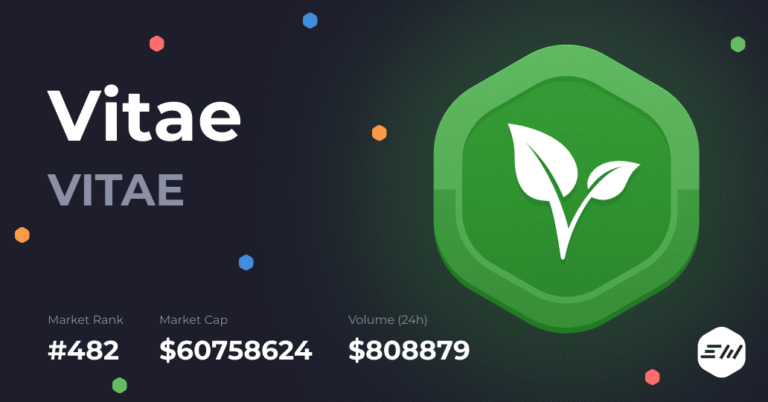Table of Contents
Introduction to Vitae Token
This article provides a detailed Vitae Token review, analyzing its offerings, structure, and the concerns raised by its users. The project has promoted itself as a cryptocurrency designed to support a global rewards ecosystem and community-driven growth. However, amid its marketing claims, questions remain: is Vitae Token a scam or a legitimate cryptocurrency project?
Our goal is to address these concerns directly, particularly for two key audiences: those who believe they’ve already been scammed by this project and are seeking answers, and those considering investing but need the full picture before committing. This Vitae Token review uncovers all the warning signs you need to know.
Vitae Token: Regulation & Legal Status
One of the most concerning aspects of Vitae Token is the lack of clear regulatory oversight. There is no verifiable registration under top-tier authorities like the U.S. SEC, FCA, or ASIC. Instead, the project appears to be managed through loosely associated entities with little accountability. This ambiguity raises red flags about transparency and governance.
Some marketing materials have suggested that Vitae Token operates under legitimate compliance frameworks, but there is no evidence to support these claims. This is a common tactic used by high-risk crypto projects to create a false sense of security. Without official oversight, investors have no recourse if funds are lost or mismanaged.
If you’re unsure about a crypto project’s legitimacy, use tools like the Vitae Token scam checker to verify key details. The lack of oversight raises serious questions about whether Vitae Token is a scam.
Trading Conditions & Platform Analysis of Vitae Token
Vitae Token promotes itself as a community-driven rewards token but lacks transparency about its tokenomics, distribution, and liquidity. There are no clear details about which exchanges list Vitae Token, what the trading spreads are, or if there are any market-making partners ensuring liquidity. This absence of transparency makes it difficult for investors to assess its true value.
Another red flag is the lack of clear documentation regarding its blockchain structure and smart contract audits. While the project may mention integrations or future listings, no credible third-party verification supports these claims. Remember, what to check before signing up with a trading platform includes verifying code audits, liquidity, and exchange reliability.
These gaps in information make it harder to dismiss the idea that Vitae Token might be a fraud.
Reputation & User Reviews About Vitae Token
User feedback on aggregators like Trustpilot is mixed, with numerous complaints about lost funds, difficulty withdrawing tokens, and lack of customer support. Some reviews appear generic or fake, likely used to counter negative publicity.
SimilarWeb data suggests that Vitae Token’s official website receives low and inconsistent traffic, typical of projects that lack a strong or active user base. This is consistent with projects that rely more on marketing hype than actual utility or adoption.
How to Test Whether Vitae Token Is a Scam
If you are unsure whether Vitae Token is trustworthy, follow these steps:
- Check for regulation: Search for Vitae Token on regulatory registers like the SEC or FCA. The absence of registration is a red flag.
- Look for red flags: Vague licensing claims or missing company details indicate potential fraud.
- Read verified reviews: Focus on credible platforms like Forex Peace Army or TrustPilot, but be cautious of overly positive, generic reviews.
- Inspect the platform: A poorly designed or unresponsive website is a warning sign.
- Review withdrawal terms: Lack of transparency or restrictions on cashing out often signals trouble.
- Watch for false promises: Any claim of guaranteed returns is a clear indicator of a scam.
- Test with caution: Use a small amount or a demo account, if available, before committing funds.
Final Verdict & Alternatives
While Vitae Token presents itself as a community-driven project, its lack of regulation, transparency, and verified utility creates significant risks for investors. The red flags—including questionable marketing claims and unresolved user complaints—suggest that it’s safer to avoid this token.
For those looking for crypto investments, consider well-established, regulated alternatives or tokens with clear audits and verifiable use cases. Always prioritize projects with transparent operations and compliance measures.



